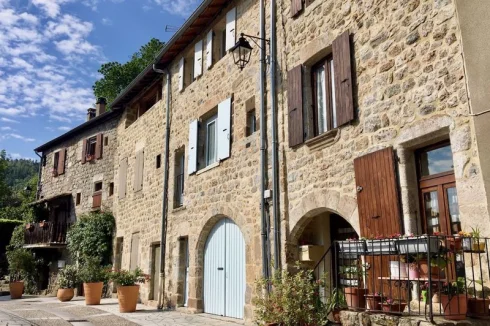French Local Health Authorities in the Firing Line
Tuesday 18 December 2007
With the publication last week of the new health circular, many of those currently in France on an E106 and likely to be excluded from access to the State health insurance system, are considering what steps to now take.
Judging from the e-mails we have received into the office, one step many have decided upon (and others are considering), is to make application for affiliation to the State system (the CMU), if only on grounds of their existing legal residence in France.
The difficulty for many is that their E106 expires at the end of the year, and the application process to get into the CMU is likely to take several weeks. Any appeal against a decision of refusal could well take several months.
The most pressing problem exists for those with a serious medical condition, as no private health insurer is going to be willing to offer them cover. The French Government have undertaken to ensure that these persons will not be denied interim health cover.
The Caisse Nationale have confirmed to us that, in the event that one member of a household is granted access to the CMU on medical grounds (or because of some other 'accident of life'), then the other members of the household will be covered by the CMU.
Nevertheless, whilst the new circular clearly grants the possibility of access to the CMU for those who faces unforeseen medical or other problems, there is a distinct lack of precision in the circular as to how the rules are to be applied.
One sympathetic local CPAM director with whom we spoke this week was still trying to come to grips with the new guidance, which he considered 'opaque'. He also felt that, whatever may be stated in the circular, the broader legal situation remained decidedly ambiguous.
Given that the CPAMs are effectively being left to their own devices, the application process across the country is bound to be something of a lottery.
Whilst there is the prospect that some CPAMs are going to be generous in their interpretation of the regulations, others are likely to be equally zealous in taking a tough line. As this is bound to further imperil the legal stability of this new law, it seems inevitable that, at some point, the health authorities will develop some internal national guidelines using the 'framework' provided by the Ministry of Health in their circular.
If you are living in France on an E106, then you can make an application to join the CMU to your local CPAM. The application should be sent by recorded delivery letter.
If there is no reply within three weeks, then you are entitled to invoke a conciliation procedure, which you can do by writing to the Conciliateur at the CPAM. They are required to respond to you within three weeks.
If you do get a decision, and it is a negative one, then you are entitled to write to the appeal body of the CPAM, called the Commission de recours amiable (CRA). These appeal bodies are quite interesting, for they include lay assessors on them.
You can find examples of letters you can use to the CPAM on the site of Frenchhealthissues, the health campaign group, with whom it might be useful to share your experience. FHI also have a complete translation of the circular on their site.
You should cite in your letter Circulaire No DSS/DACI/2007/418 dated 23 Nov 07, which grants right of the CMU to those with a serious medical condition, or who have suffered some other 'accident of life'. Include in the letter any supporting evidence.
It might also be worthwhile making representations to your local mayor, many of whom will be sympathetic, and whose written support may well be quite useful.
The same circular also grants an automatic right to the CMU for those who have been regularly resident in France for at least 5 years.
We also repeat the advice we gave in a recent newsletter concerning self-employment as a 'holding' strategy for health cover.
Under the new health and immigration laws, breaking the cycle of 'inactivity' gets you into the system, even if the business does not work out, and you later decide to close it.
A self-employed person who decides to close a business after (say) a year will get cover from the Régime Social des Travailleurs Indépendants (RSI) for up to a year, after which there is the right of cover through the CMU.
Neither is anyone who takes self-employment for a limited period, and with no serious revenue earning aspirations in mind, going to face high social security charges.
Whilst the current situation is a deeply worrying one for many, we are of the view that, going forward, no-one need feel that they are hapless prey to private health insurers, or that they face a treadmill of high self-employment social security contributions.
Thank you for showing an interest in our News section.
Our News section is no longer being published although our catalogue of articles remains in place.
If you found our News useful, please have a look at France Insider, our subscription based News service with in-depth analysis, or our authoritative Guides to France.
If you require advice and assistance with the purchase of French property and moving to France, then take a look at the France Insider Property Clinic.





